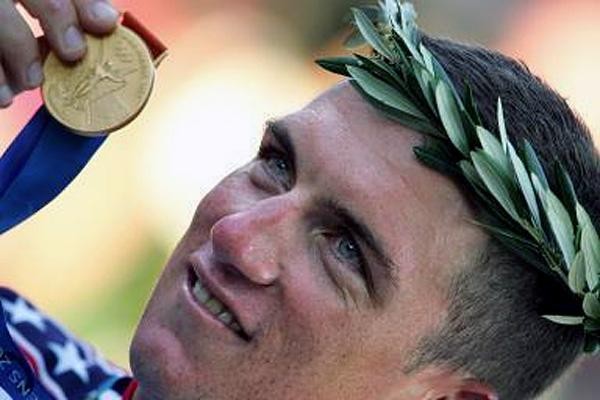An interview with Tyler Hamilton
Following the passing of a two year suspension on him last week, Tyler Hamilton has told...

Tyler's side of things: Hamilton reacts to doping ban
Following the passing of a two year suspension on him last week, Tyler Hamilton has told Cyclingnews' Shane Stokes that he has every intention of fighting his case. Although the Olympic champion was found guilty of committing a doping offence by the USADA-appointed American Arbitration Association panel, he has remained both defiant and optimistic about his chances of eventually being cleared, taking consolation from the dissenting voice of one of the three arbitrators judging the matter.
"In May, we will file an appeal that will be heard by the Court of Arbitration for Sport in Switzerland," Hamilton told Cyclingnews. "We will ask for an expedited hearing to try and resolve my case as quickly as possible, but we assume it will take a couple of months to schedule. We still feel very good about our case, and look forward to the appeal process moving ahead. We are encouraged by the fact that Christopher Campbell, who has been on more doping arbitration panels than perhaps any CAS arbitrator, agreed that this is a bad test that should not be used. We believe his dissent is the first written opinion by a CAS arbitrator finding that a specific doping test is invalid."
Responding to a number of questions put to him by Cyclingnews, Hamilton outlines the problems he had with the process. Apart from his dissatisfaction with what he said were inaccurate UCI measurements of his blood in the run-up to last year's Tour de France, he highlights several factors specific to his positive test which he feels weakens the case against him. Firstly, Hamilton cites the lack of a false positive study which, he says, makes the test unacceptable within the scientific community. He also criticises the lack of quantifiable criteria for a positive test, rejecting the 'I know it when I see it' approach, and blasts WADA for what he says was selective interpretations of peer-reviewed studies.
"The peer-review article and the comments of the peer-review committee determined that the test had a lower limit of detection or minimum threshold that should be applied before calling a sample positive for a blood transfusion," he explains. "All experts agreed that my sample was below that minimum threshold. But WADA and the Panel completely disregarded the minimum threshold. That was very disappointing."
Hamilton says that his Olympic 'A' sample was twice deemed negative, before being changed. He says that such a modification of a result is a violation of WADA code, as was the lack of anonymity in the case. 'All tests conducted for anti doping purposes are supposed to be anonymous. None of mine were. Ever. Which is not only a violation of the WADA code, but my right to privacy as well,' he states. Furthermore, he feels that statements proclaiming his guilt by WADA president Dick Pound call into question the whole impartiality of the process.
"I don't think it's fair for officials from any governing body to speak out about a case before athletes have had the chance to defend themselves," he says. "At the onset of my case I was told things would remain confidential until there was a conclusion. But before my B sample testing could begin news of my case was leaked to the press. What if my B samples came back negative all the way around? It seems that some folks are comfortable with trying cases through the media before the judicial process resolves them. I don't think this is appropriate. Nor am I comfortable with the concept of guilty until proven innocent."
Get The Leadout Newsletter
The latest race content, interviews, features, reviews and expert buying guides, direct to your inbox!
The UCI and WADA remain convinced that they have a case, that Hamilton is guilty and that he will serve a two year ban. Everything hinges on how the CAS appeal progresses; if it accepts the UCI/WADA/USADA view, his career is almost certainly over. But, if it goes the other way and they agree with Hamilton's arguments, he will be back racing this year. Seven months have passed since news of his positive tests, but the final outcome still remains to be decided.
Click here for the full interview